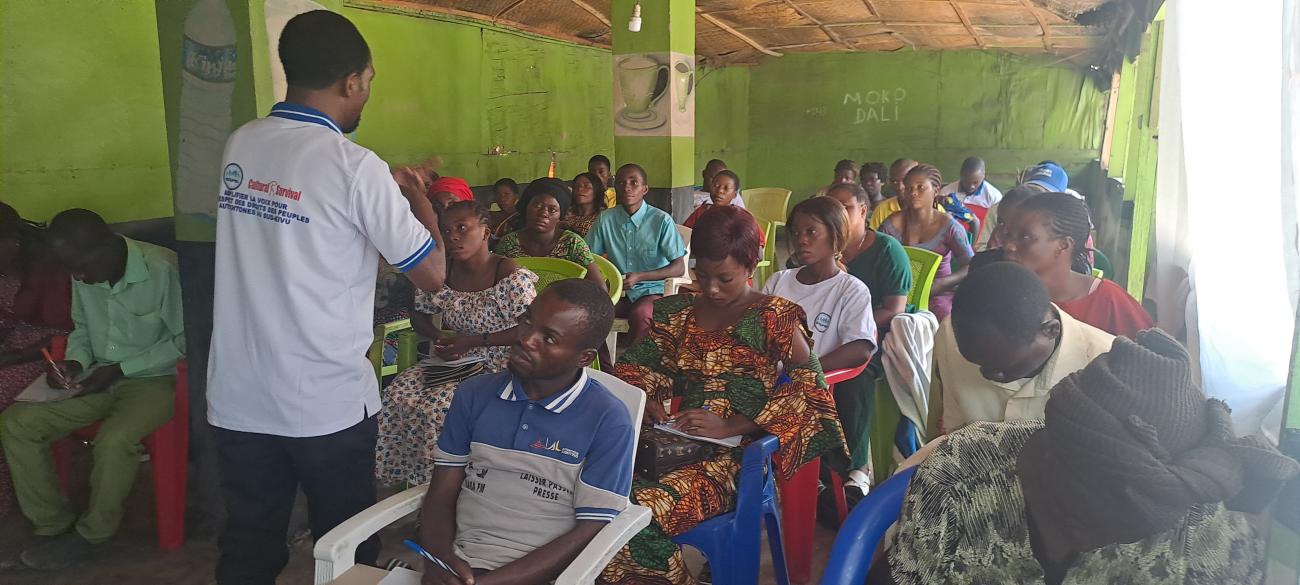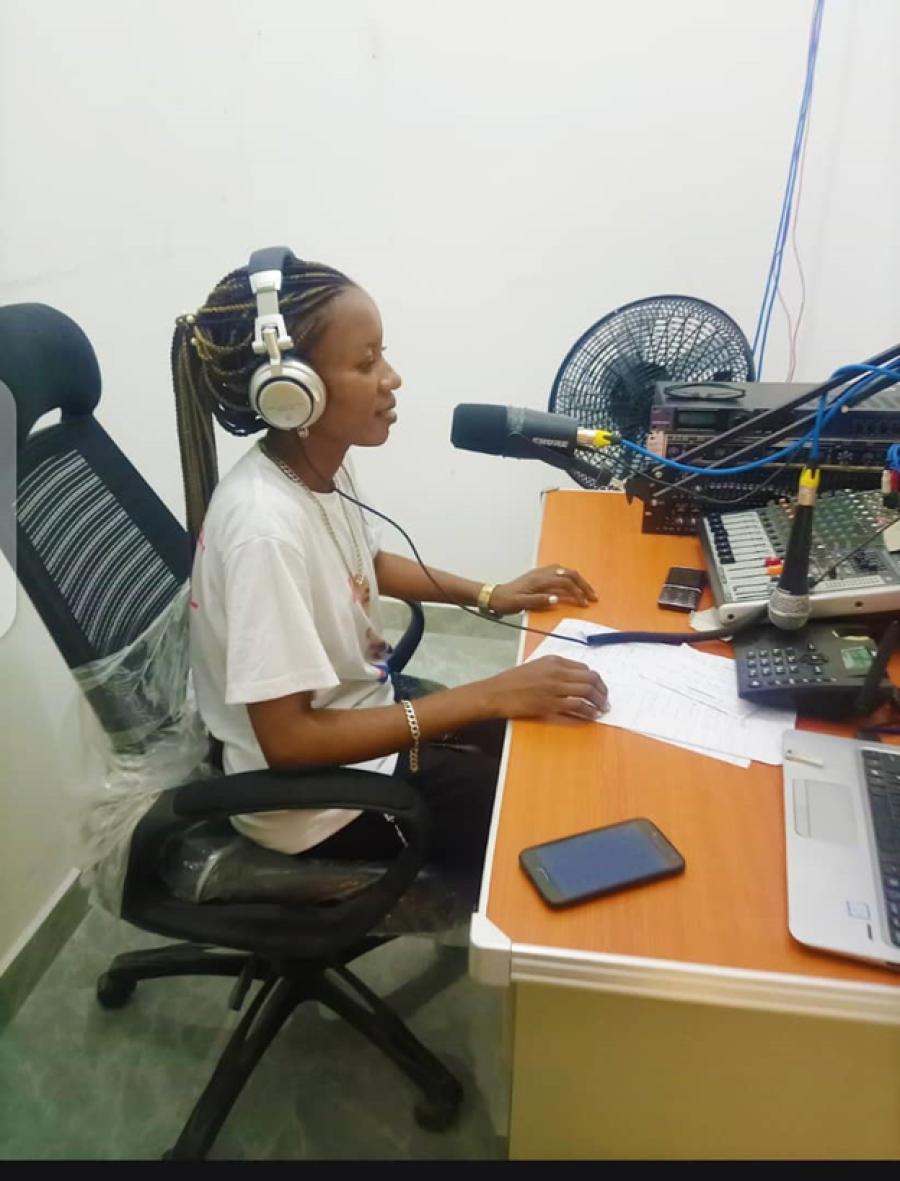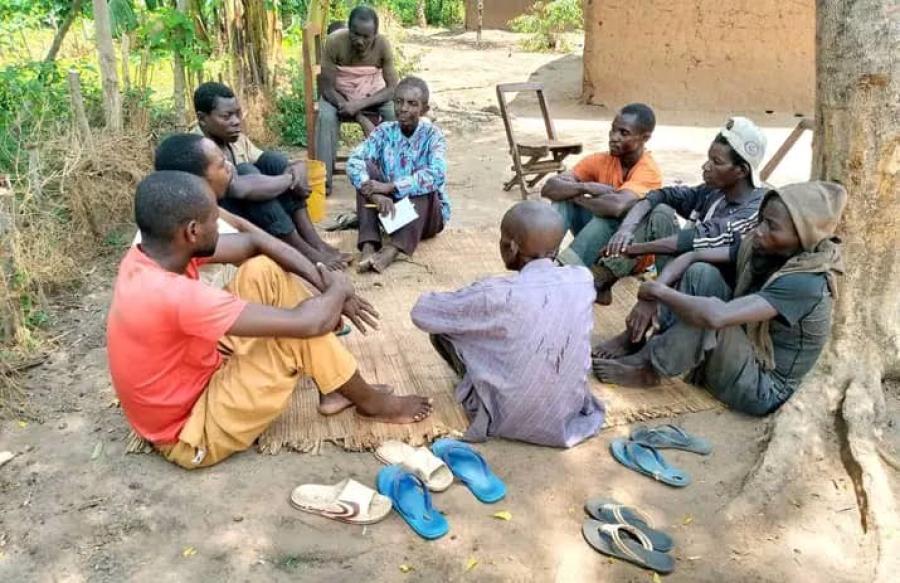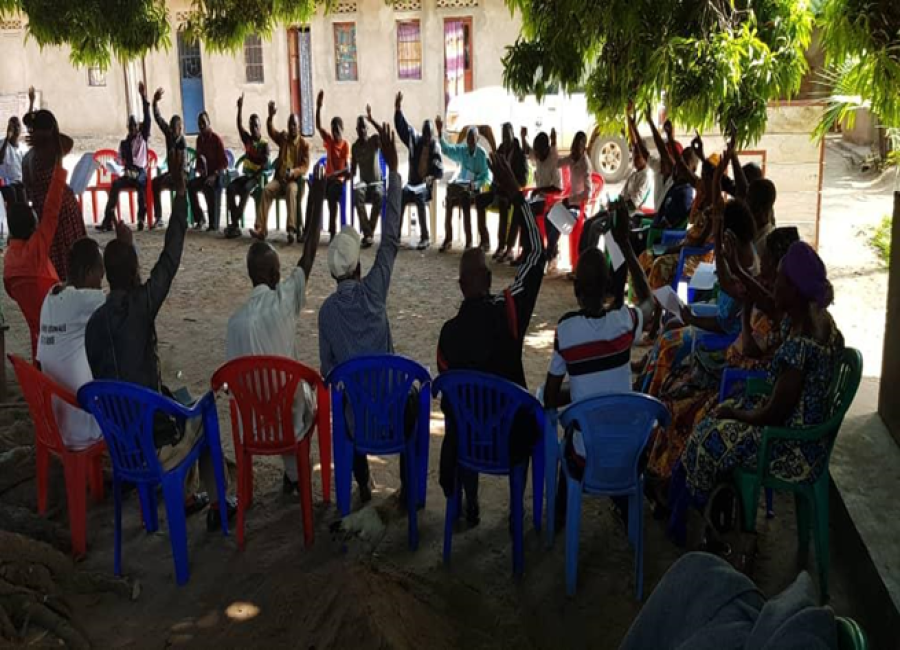
By Jeannette KAZERA, Organization Coordinator
In the Fizi territory of the Democratic Republic of Congo, the illegal and unregulated exploitation of transition minerals such as cobalt, lithium, copper, gold, and cassiterite has long threatened the environment and human rights of local Indigenous communities. To combat this, the Union of Indigenous Women for Integral Development (UFAPDI), funded by Cultural Survival, launched a project to strengthen Indigenous leadership and empower communities through media.
The project, which ran from August 15, 2024, to June 15, 2025, addressed unmet needs of the local community radio station, Radio La Voix de la Femme (RVF 99.5 FM), by providing new electrical equipment, including three 220-ampere batteries and 7, 150-watt solar panels. The upgrades have become a source of hope, raising the voices of people who have been marginalized for too long.
This upgrade has allowed the radio station to increase its broadcast hours, which were previously disrupted by low battery capacity. The director of RVF, Salima Makano, said, "I am happy to have been able to benefit from this equipment from UFAPDI and its donor, Cultural Survival. Delphin Aoci, a radio technician, added, “Thanks to the new solar panel and the installed batteries, we can finally broadcast every day.”
A key part of the initiative involved strengthening the skills of Indigenous community members. A three-day workshop was held for 45 members of newly established radio clubs—35 women and 10 men—who were trained in journalism, mining law, and Indigenous leadership. The training also covered the Community-Led Indigenous Peoples’ Processes and techniques for documenting and advocating against the impacts of illegal mining. The project established five radio clubs in the towns of Mukera 1, Mukera 2, Bakatonier, Kasonge, and Lumbi, where members now work to educate and raise awareness locally through the radio station.
The project has produced a range of tangible results. Over 1,000 community members have been educated on mining rights and Law 030, which protects and promotes the rights of Indigenous Peoples. This has contributed to a reduction in illegal mining cases in the project area. The radio clubs, in collaboration with RVF journalists, produced 80 radio shows and spots in Swahili and French over 10 months. These programs have led to significant changes in perception and behavior within the community. One Pygmy listener recounted, “I heard a program about the importance of girls’ education. It made me think, and I decided to send my daughter to school.”
The training has given participants a sense of empowerment. Johari Adre, a Pygmy journalist, shared her emotions after receiving her training certificate. “I didn't know if a girl from the Indigenous Pygmy community could benefit from such training, which has provided me with new knowledge about mining law—as have other young people, because we were often excluded from this type of training, which does not select anyone from the Indigenous Pygmy community. I thank the UFAPDI organization and its funder, Cultural Survival, for this training," she said.
A young female club member from the Pygmy-Batwa community stated, “I gained self-confidence. Speaking on the radio gave me a voice, and now I am listened to.” Another community resident, Amuri Aoci, said, “Before, we didn't know how to react to illegal diggers. Today, I can talk to local authorities and defend our rights without fear."
Despite some initial challenges, such as the low technical skill level of some participants and difficulties broadcasting to distant areas, the project successfully addressed these issues through additional training and technical adjustments to the radio's antennas. The project has demonstrated that community involvement is crucial to achieving sustainability. While no further funding has been secured yet, some community members have voluntarily committed to continuing awareness campaigns. The project has demonstrated the power of Indigenous-led media to empower communities, promote their rights, and hold authorities accountable for protecting their land and resources.
In 2024, UFAPDI received a grant from Cultural Survival’s Indigenous Community Fund, which provides opportunities for journalism, broadcasting, audio editing, technical skills, and more for community media from Indigenous communities worldwide. In 2024, the Fund provided $480,000 in grants to 57 Indigenous communication projects benefiting Indigenous communities in 25 countries across the Americas, Africa, and Asia, including Argentina, Bangladesh, Bolivia, Botswana, Brazil, Chile, Ecuador, Colombia, the Democratic Republic of Congo, El Salvador, Guatemala, India, Kenya, Mexico, Nepal, Nigeria, Peru, the Philippines, Senegal, South Africa, Tanzania, the United States, Venezuela, and Zimbabwe.



